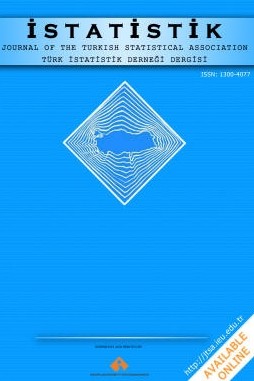Discrete time shock model with varying success probability
Discrete time shock model with varying success probability
___
- Sumita, U. and Shanthikumar J.G. (1985). A class of correlated cumulative shock models. Advances in Applied Probability, 17, 347-366.
- Gut, A. (1990). Cumulative shock models. Advances in Applied Probability, 22, 504-507.
- Mallor, F. and Omey E. (2001). Shocks, runs and random sums. Journal of Applied Probability, 38, 438-448.
- Wang, G.J. and Zhang Y.L. (2005). A shock model with two-type failures and optimal replacement policy. International Journal of Systems Science, 36, 209-214.
- Bai, J-M., Li, Z-H. and Kong, X-B. (2006). Generalized shock models based on a cluster point process. IEEE Transactions on Reliability, 55, 542-550.
- Li, Z.H. and Kong, X.B. (2007). Life behavior of δ-shock model. Statistics and Probability Letters, 77, 577-587.
- Li, Z.H. and Zhao, P. (2007). Reliability analysis on the δ-shock model of complex systems. IEEE Transactions on Reliabilit, 56, 340-348.
- Eryilmaz, S. (2012). Generalized δ-shock model via runs. Statistics and Probability Letters, 82, 326-331.
- Eryilmaz, S. (2013). On the lifetime behavior of a discrete time shock model. Journal of Computational and Applied Mathematics, 237, 384-388.
- Charalambides, C.A. (2010). The q-Bernstein basis as a q-binomial distributions. Journal of Statistical Planning and Inference, 140, 2184-2190.
- Yalcin, F. and Eryilmaz, S. (2014). q-Geometric and q-Binomial distributions of order k. Journal of Computational and Applied Mathematics, 271, 31-38.
- Khan, M.S.A., Khalique. A. and Abouammoh, A.M. (1989). On estimating parameters in a discrete Weibull distribution. IEEE Transactions on Reliability, 38 (3), 348-350.
- Phyo, I. (1973). Use of a chain binomial in epidemiology of caries. Journal of Dental Research 52, 750-752.
- Krishna, H. and Pundir, P.S. (2009). Discrete Burr and discrete Pareto distributions. Statistical Methodology, 6, 177-188.
- Nakagawa, T. and Osaki, S. (1975). The discrete Weibull distribution. IEEE Transactions on Reliability, 24, 300-301.
- ISSN: 1300-4077
- Başlangıç: 1998
- Yayıncı: Başbakanlık
Estimation of Parameters of Morgenstern type Bivariate Lindley Distribution by Ranked Set Sampling
Kumaraswamy Alpha Power Inverted Exponential Distribution: Properties and Applications
Joseph THOMAS, Samuel Chiabom Zelibe, Eferhonore Eyefia
Discrete time shock model with varying success probability
Kadir KARAKAYA, Yunus AKDOĞAN, Fatih ŞAHİN, İsmail KINACI, Coşkun KUŞ
Risk Premium For Dependent Risks Using Utility Copulas And Risk Aversion
